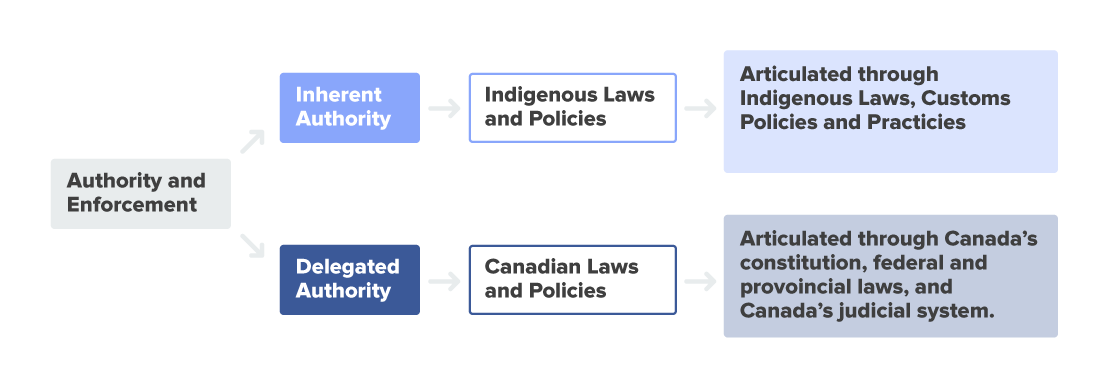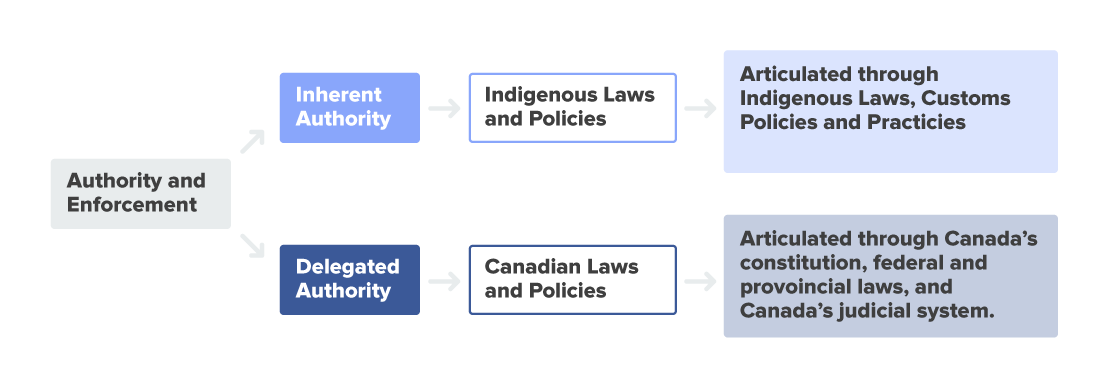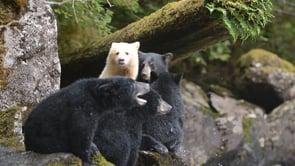Where does authority and enforcement fit into your guardian program?
The question of authority and enforcement is a key and complex consideration for many Indigenous Guardian programs. Not all guardian programs want to put their staff or organizations in a position of enforcing laws and the corresponding legal and administrative implications of doing so.
For those communities who do, it is important to consult with legal counsel to fully understand the legal context and implications of your guardian program being involved in enforcing either Indigenous Laws and/or Canadian Laws. It is also important to understand the responsibilities, training, liabilities and administration that accompany enforcement roles.

Prior to the arrival of settler society, Indigenous people exercised legal authority over their lands and waters. This inherent authority still exists today, and continues to be articulated through Indigenous laws, customs, written policies and practices. In the present day context, Indigenous communities are taking different approaches and are at different stages of revitalizing, articulating and putting into practice their Indigenous legal frameworks.
With the advent of the Canadian state and constitution, there are now multiple legal frameworks and sources of authority that govern activities on the lands and waters. At this point in time, Canadian law offers little recognition to Indigenous law and Indigenous authority to enforce their laws. As a result, any enforcement of Indigenous laws, especially those that conflict with the Canadian legal system, may risk repercussions under Canadian law. Under some arrangements, Canada has delegated authority to enforce Canadian Law to Indigenous governments.
For a more detailed discussion about both the inherent authority to enforce Indigenous laws and the delegated authority to enforce Canadian laws see Infosheet below:

